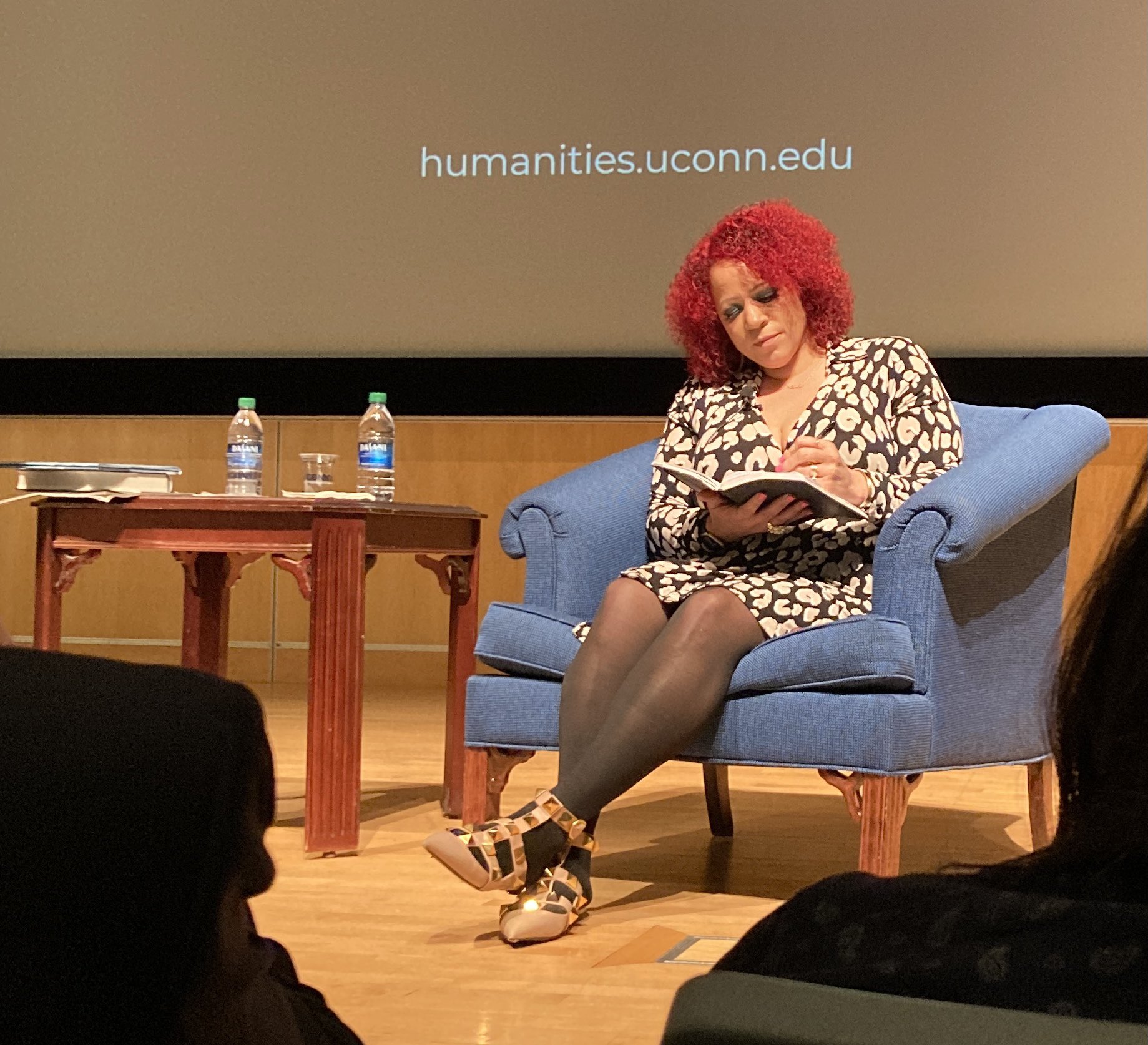
March 30 appearance in the UConn Student Union and proceeded to ask a question of interviewer Prof. Manisha Sinha. (Photo by Marie K. Shanahan/UConn Journalism)
Journalist Nikole Hannah-Jones had one goal as a history major at the University of Notre Dame: to not take a single class in European history.
Growing up in Waterloo, Iowa, in the 1980s and ’90s, she heard all about European influences on America and not a word about Black contributions to the birth of a nation. So, when she advanced to college and took her first Black American history class, she pledged to delve only into the stories of other nations, creeds, races, and genders.
“It was like I could breathe for the first time,” she told a UConn audience Wednesday about that initial Black American history class she took.
Before college, she said she assumed Black people hadn’t had any influence on the country and its communities, because no one around her made mention of their contributions. Certainly, her teachers would have said something, she said, because aren’t they supposed to spotlight the most significant historical impacts?
But “we have not had neutral history,” she said. And Black “history has not been part of the standard way we have studied history.”
Since those days, Hannah-Jones has dedicated her career to advocating for people of color and prompting change in how the country discusses race.
Hannah-Jones joined UConn history professor Manisha Sinha on March 30, 2022 for a conversation on producing “The 1619 Project” with The New York Times Magazine, winning the Pulitzer Prize for Commentary during the pandemic, and what being patriotic means to her.
Read the full story by Kimberly Phillips on UConn Today.